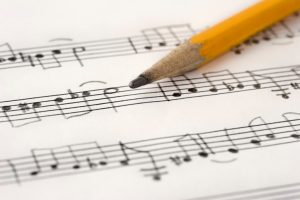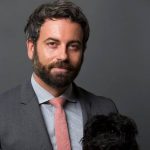 The Ninth Circuit just let the needle drop on a blockbuster opinion in a copyright case that, like your turntable, has gone ‘round and ‘round and ‘round again. The Circuit therein turns its gaze to the requirements for a work to qualify as a legal “derivative,” the application of byzantine compulsory music licenses, the technical aspects of song remastering, and everyone’s favorite bar exam subject — preemption. In doing so, the appellate panel provides a thoughtful and thorough analysis of these (and other) complex copyright and music industry issues before pressing play and remanding for further proceedings.
The Ninth Circuit just let the needle drop on a blockbuster opinion in a copyright case that, like your turntable, has gone ‘round and ‘round and ‘round again. The Circuit therein turns its gaze to the requirements for a work to qualify as a legal “derivative,” the application of byzantine compulsory music licenses, the technical aspects of song remastering, and everyone’s favorite bar exam subject — preemption. In doing so, the appellate panel provides a thoughtful and thorough analysis of these (and other) complex copyright and music industry issues before pressing play and remanding for further proceedings.
The action, styled ABS Entertainment, Inc. v. CBS Corporation, pits the owners of a library of old-school (defined for legal purpose as pre-1972) sound recordings against the CBS radio empire, which wanted to broadcast and stream those old-school recordings without paying any license fees.
CBS is already protected by The Sound Recording Act, which includes a safe haven, under 17 U.S.C. § 114(d), for terrestrial radio performance. That means that when you hear a tune on your non-Sirius car radio or through your boombox while kicking back on the stoop, the radio station pays nothing to the artist, which allows it (the radio station) to maximize the profits made from selling all those 1-877-Kars-4-Kids advertisements. So, it was all good there.
But CBS must pay royalties when it broadcasts or transmits digital streams, at least for new-school (defined for legal purposes as 1972 or thereafter) sound recordings. These royalties, under federal copyright law, are governed by compulsory license obligations set by statute.
Old-school sound recordings, though, were specifically exempted from federal copyright law (including the compulsory license statutes), leaving the states to fill in the gaps. California did so, offering protection to musicians under California Civil Code § 980(a)(2), which protects the property rights of an author of an old-school sound recording and does not include a compulsory license.
So, when ABS discovered that CBS was digitally streaming its old-school songs, ABS sued, as part of a putative class, alleging that CBS’s transmission and distribution of remastered sound recordings of ABS’s old-school songs violated the aforementioned California statute.
The wrinkle in the case, seized on CBS for its primary defense, can be found in the definition of “remastered” as used in the sound-recording context. CBS argued that the remastering of the old-school sound recordings, which took place after 1972, magically transformed them into new-school sound recordings that, as derivative works, would be outside of the purview of California Civil Code 980. The argument was clever enough to convince the district court to grant summary judgment for CBS. The Ninth Circuit, though, saw through the old-school to new-school legerdemain, and demarcated the contours of what constitutes a derivative work along the way.
A “derivative work,” the court noted, is one based upon a preexisting work that “recast[s], transform[s], or adapt[s]” that preexisting work and “consist[s] of editorial revisions, annotations, elaborations, or other modifications which, as a whole, represent an original work of authorship.” Notably, “the original aspects of a derivative work must be more than trivial,” and “must reflect the degree to which it relies on preexisting material and must not in any way affect the scope of any copyright protection in that preexisting material.” If the remastering of the old-school songs included an infusion of original creativity, it would have created new derivative works, and those works would be covered by federal and not state law. This would be good for CBS, as the sound recordings would be covered by the federal compulsory license and there would be no damages due under Section 980.
The Ninth Circuit finds CBS’s argument lacking for at least two reasons. First, the “original aspects” required for the old-school songs to transform into new-school songs did not exist. The court noted that “there is no dispute that all of the sounds contained in the remastered sound recordings—the vocals, instruments, inflection, dynamics, rhythms, and sequences—were initially fixed in a studio before 1972.”
While not throwing shade at the sound engineers, who certainly made changes to the “timbre, spatial imagery, sound balance, and loudness range” of the sound recordings, the Ninth Circuit found that those changes were technology-driven and went to sound quality as opposed to originality. Thus, the old-school sound recordings remained old-school even when remastered, and CBS’s argument that Section 980 did not apply failed.
The Ninth Circuit further concluded that “the broadcast of the remastered sound recording also broadcast the pre-1972 sound recording therein embodied, just as it also broadcast the underlying musical composition.” Thus, even if the old-school song had converted to new-school due to the remastering, the old-school recording was still embodied in the new-school recording, and that underlying work would still be protected by the California statute and not subject to preemption.
There is much, much more in the opinion, including copious instructions to the district court on how to handle the case on remand (the Ninth Circuit seems to believe that it will see this matter again in the future) and an admonishment of the district court for abusing its discretion in excluding business documents based on a misunderstanding of the business records exception to the hearsay rule, abusing its discretion in excluding ABS’s expert, and improperly denying a joint request by the parties to extend the class certification deadline. The Ninth Circuit did not find much to like in the lower court’s analysis and it will be fascinating to see how the directives are applied on remand. We will be keeping our dials tuned to this one, eagerly awaiting side two.
 Scott Alan Burroughs, Esq. practices with Doniger / Burroughs, an art law firm based in Venice, California. He represents artists and content creators of all stripes and writes and speaks regularly on copyright issues. He can be reached at scott@copyrightLA.com, and you can follow his law firm on Instagram: @veniceartlaw.
Scott Alan Burroughs, Esq. practices with Doniger / Burroughs, an art law firm based in Venice, California. He represents artists and content creators of all stripes and writes and speaks regularly on copyright issues. He can be reached at scott@copyrightLA.com, and you can follow his law firm on Instagram: @veniceartlaw.
Old School And New: Ninth Circuit Presses Play In Music Copyright Dispute curated from Above the Law
No comments:
Post a Comment